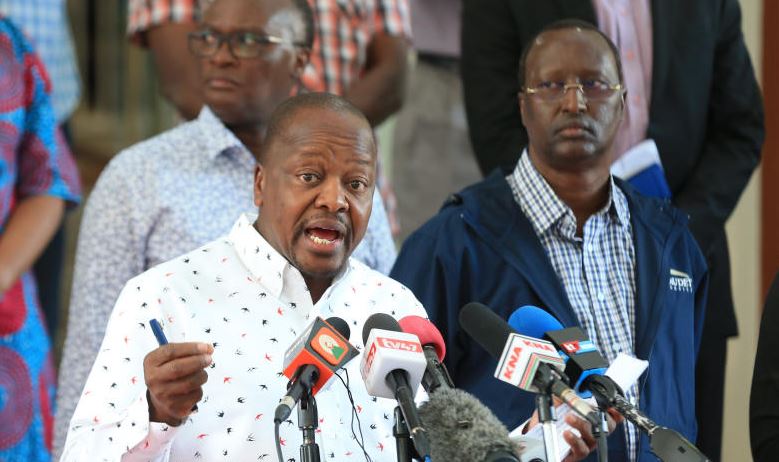×
The Standard e-Paper
Home To Bold Columnists

Health CS Mutahi Kagwe accompanied by a National Emergency Response committee briefing the media at Harambee House. [Stafford Ondego/Standard]
Kenya has entered the second week since confirming the first Covid-19 case, a period that may determine the fate of the country.